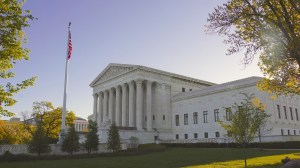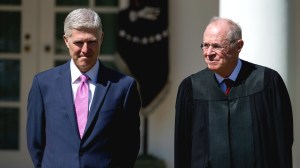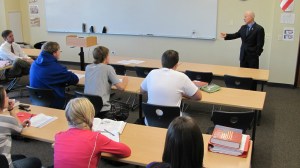In this series

Students in New Hampshire may continue to receive taxpayer-funded scholarships to attend private schools, but only if those schools are not religious, according to a "precedent-setting" court decision that breaks from recent rulings by other states.
Yesterday, a judge ruled that New Hampshire's Education Tax Credit Program violates sections of the state constitution by using tax-raised funds to provide scholarships for private-school students. But unlike previous rulings in other states, which have either upheld or struck down such programs wholesale, the New Hampshire court preserved the portion of the program that provides scholarships for non-religious schools.
The program itself is still new, approved only in 2012. It "offers businesses an 85 percent tax credit for donations they made to organizations that fund tuition at religious and other private schools," the Washington Post reports.
As a result, lawyers for the state argued that the "money should not be considered 'public funds' because it stems from private donations and then passes through the hands of the scholarship organizations," according to the Associated Press. "But the judge rejected that argument, saying that the program diverts money that would otherwise be flowing to the government."
Yet Religion Clause's Howard Friedman notes that the unusual aspect of what he labeled a "precedent-setting" ruling, in addition to its departure from "interpretations of the federal and some other state constitutions," is the court's decision to uphold the program itself "so long as scholarships are awarded only for attendance at non-religious schools."
CT previously has reported on education vouchers and similar tax-credit scholarships. Most recently, CT reported that the Indiana Supreme Court upheld its state's voucher program, just weeks before the Louisiana Supreme Court ruled its program was unconstitutional.
CT also has reported on the school-choice movement's pivot from vouchers to tax credits. However, such programs have also been accused of misuse of scholarships for religious schools.











